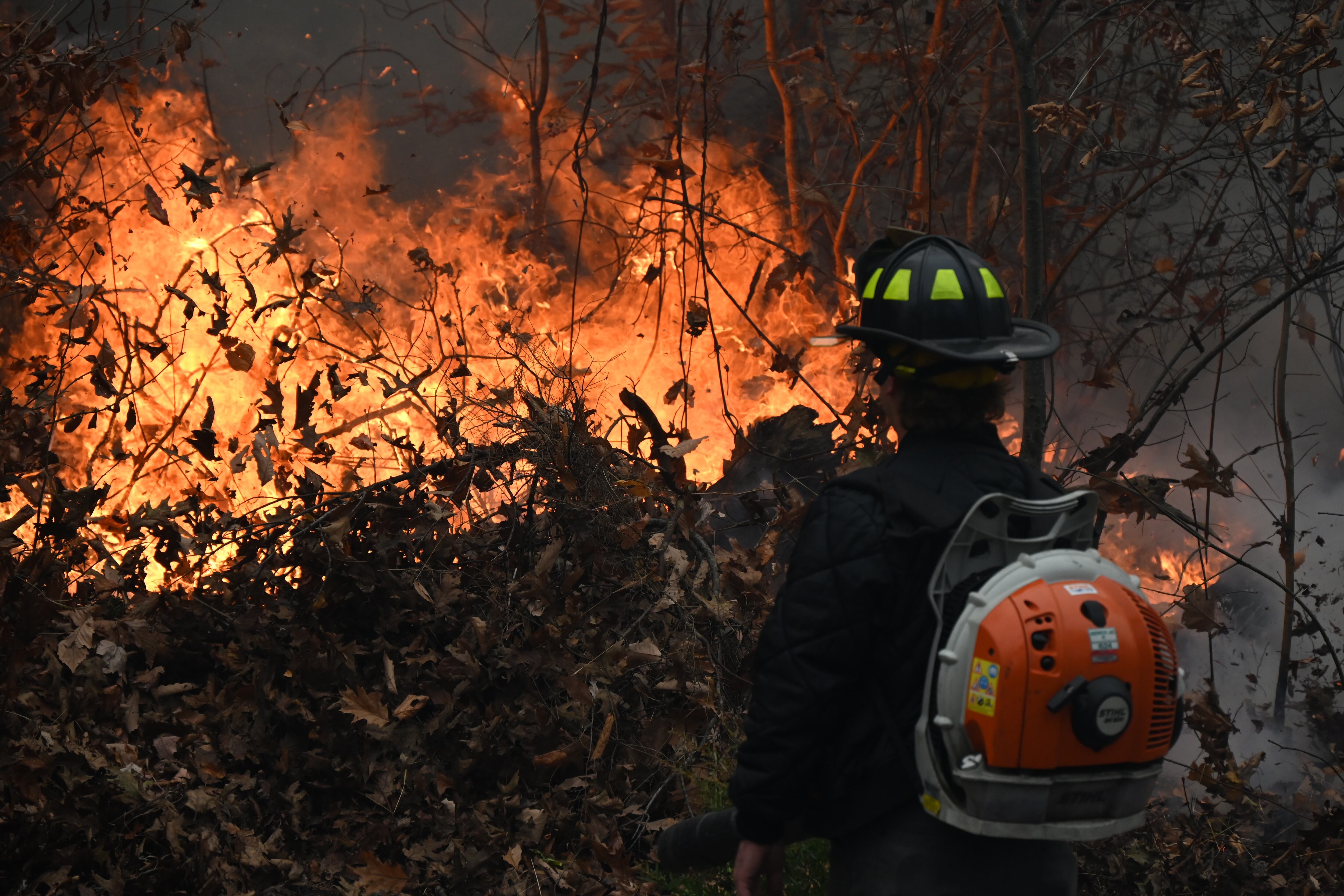Public health, explained: Sign up to receive Healthbeat’s free New York City newsletter here.
With a wildfire burning on the New York-New Jersey border and dry, blustery conditions throughout the state, New York officials urged residents to heed fire warnings and conserve water.
The Jennings Creek wildfire, about an hour northwest of New York City, continued to burn on Tuesday. The wildfire encompasses 5,000 acres — including 2,700 acres in New York state — and is far from contained, Gov. Kathy Hochul said during a press conference. The wildfire is the state’s largest since 2008, she noted.
Recent blazes have thrown the dangers of New York’s dry autumn into sharp relief. On Friday night, about 100 firefighters responded to a brush fire that burned two acres of Prospect Park. The next day, an 18-year-old New York State Parks employee died while assisting with the wildfire response in Orange County. New York City remains under a drought watch and wildfire smoke degraded the city’s air quality over the weekend.
A red flag warning for New York City, the Lower Hudson Valley and Long Island was in effect through 6 p.m. Tuesday. The warning indicates critical fire weather conditions — strong winds, low humidity, and dry fuel — that can create “rapid fire spread if ignition occurs,” according to the National Weather Service.
Under a red flag warning, residents are urged to limit hazardous activities, including lighting campfires, burning leaves, and tossing matches outside, said Nelson Vaz, a New York-based meteorologist at the National Weather Service.
“Anytime you have winds like today, 35-, 40-mph winds and the dry conditions, that makes it very difficult for the containment, because you get a lot of the embers getting pushed out further by the wind,” Vaz said of the Jennings Creek wildfire.
New York received just a smattering of rain on Sunday and dry conditions are expected for the rest of the week, he added.
Hochul announced a statewide burn ban Tuesday, prohibiting the lighting of outdoor fires like brush fires, open cooking fires, and recreational fires, until Nov. 30. Describing the dry statewide conditions as “pretty dire,” she also asked New Yorkers to conserve water.
“We don’t know how long this will last,” she said. “This could be an atypical winter. So again, the conservation efforts we’re asking everyone to undertake should continue for months.”
During a press conference at City Hall on Tuesday, New York City Mayor Eric Adams commended the New York City Fire Department for its response to the Prospect Park fire, which he called “extremely frightening.” Adams recently banned grilling in parks, and he asked New Yorkers to do their part to reduce the risk of fires.
“Never thought we’d be in the city talking about brush fires, but it just really goes to show you how this issue around droughts and the lack of rain and the environmental crisis that we’re facing, how it’s real,” he said.
As the city continues to face drought conditions, Adams urged New Yorkers to conserve water by reporting leaky fire hydrants to 311, taking shorter showers, and not letting faucets run.
“We need rain,” Adams said. “We can’t get any clearer than that.”
Eliza Fawcett is a reporter covering public health in New York City for Healthbeat. Contact Eliza at efawcett@healthbeat.org .






